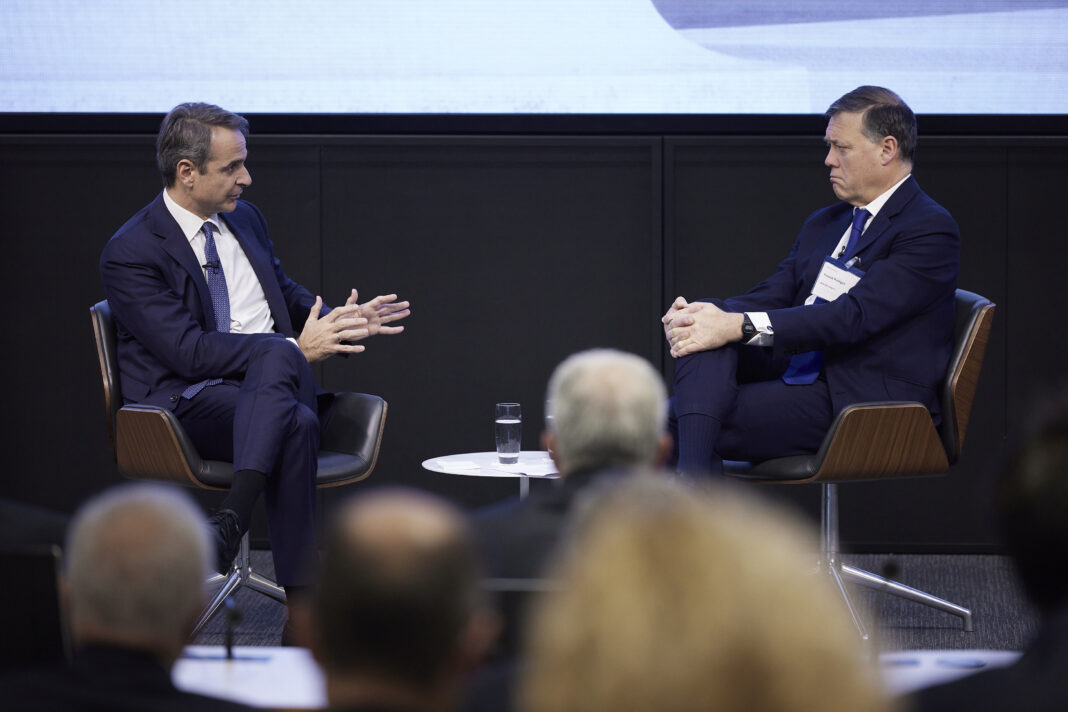Greek Prime Minister Kyriakos Mitsotakis addressed the Greek Investment Conference that was held at Morgan Stanley’s London conference center on Monday and met with international investors and business leaders.
At the event, which was co-organized with Athens Stock Exchange, Mitsotakis was also introduced to the discussion by the head of Morgan Stanley International, Franck Petitgas, who spoke of his positive assessment of Greece’s economic course and its prospects in the midst of an unfavorable international predicament.
“We certainly feel a lot of optimism here at Morgan Stanley, especially when it comes to comparing [Greece] with the rest of the world, across all industries,” Petitgas noted.
In his address, the Greek premier emphasized the economy’s good performance and Greece’s emergence as an investment destination.
He also underlined Greece’s geopolitical and energy advantages, the political dilemmas of the upcoming national elections in Greece in 2023, and his government’s main political goals for the coming years.
Mentioning Greece’s growth rates, Mitsotakis said that “as far as 2022 is concerned, we will be close to 6%, while for 2023 we expect a 1.8% – three times higher than that of the eurozone average,” adding that the country’s current development shows objectively sustainable features and an extrovert economy.
Investors should not be alarmed by the likely two rounds of national elections in 2023, as these will be held only a few weeks apart, he noted, during which time an interim government will oversee the transition. He also said he believes he will be able to form an independent government, and expects a boom in investments following the elections. The priorities for the next term in power are the quality of development, sustainability, digitization and society, which are part of the government’s policies at all levels.
Finally, Mitsotakis expressed his belief that “you need two full terms in Greece to really ‘turn the page’ and level up people’s perception of the country,” and that “the world now associates Greece with a positive outlook.”
“In the past, when someone referred to Greece during the economic crisis, everything related to difficulties: the relationship between borrower and lender, the crisis, social upheaval. I have the feeling this is no longer true, and this is significant,” he concluded.
SOURCE; ANA-MPA







